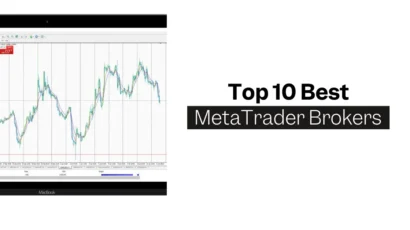Disclosure: Privacy Australia is community-supported. We may earn a commission when you buy a VPN through one of our links. Learn more.
Another Collapsed AU Bank, Post-Pandemic — Volt’s CEO ‘Gutted’
Volt’s CEO speaks out as it announces operational ceasing this week — 6000 customers will be impacted, 140 employees losing their jobs in the latest post-pandemic hit to the AU banking sector.
The CEO of an Australian bank, which will no longer be operational this week, says he is “gutted”.
According to reports on Thursday, a digital bank by the name of neobank will close its doors permanently as 140 staff are left jobless and 6000 customers hit.
The bank has asked its 6000 customers to withdraw their cognitive $100 million AUD of deposits before the bank begins its process of closing accounts from early next week.
North Sydney Company
The virtual company, which had brick-and-mortar offices in North Sydney, also says it will return its licence to operate as a bank to the regulators from Wednesday.
Volt is made up of eight board-members — members include a previous HSBC Bradley executive Graham Bradley Volt — passed a vote to close down the firm because it was unable to raise enough capital to carry out operations for mortgage-issuing .
In an interview with BankingDay, Volt CEO and founder Steve Weston stated he was gutted that his customers and staff would be impacted, as they had been supporting the business. Nonetheless, banks are not able to function without capital; he compared this to an engine not being able to start without petrol.
Track-record and questions
Volt has been around since 2017 was actually the first start-up that successfully gained one of the new provisioned banking licences in the beginning of 2019, which was prevented once the Australian government decided to boost competition in that industry.
Seeing the front-runner fall into oblivion raises questions. Weston himself said that he believes Australia still needs to enhance the amount of competition as in that sector. The company reportedly has the technology and capability, not the petrol needed to get the engine going.
The current market, which is seeing inflation and a lasting recession that the Brits had been calling ‘stagflation’, current market in Australia was not supposedly able to provide the liquid capital for more competition and scaling up.
Volt wanted to raise $200 million, but with the pandemic and tense global climate, these efforts were thwarted. This compares with previous funding rounds, where it was able to successfully raise to version $212 million during seven rounds of funding.
What to Do Next
If you are a Volt customer, you will notice that most of the website has been shut down, other than a statement answering a series of questions.
It emphasises that the company has not gone bankrupt — they have enough funds to return the money of their customers, as well as to expediently transfer money to a different bank account. To this purpose, Volt has heightened its transfer limits to $250,000.
This process is being closely overseen by Australia’s finance prudence regulator, a PRA, to make sure that funds are correctly and quickly returned to customers. That link above should answer all of your questions in terms of being reimbursed in an orderly manner.
Takeaway
Volt’s demise is not a one-of-a-kind. In fact, they will add to a long list of firms who have perished recently post-pandemic as the world sees what tension and inflation, as well as supply-chain crushes.
Australia’s government stability packages have no longer been able to withstand financial pressures on Australia’s companies. Indeed, one of neobank’s rivals, Xinja, was also forced to shut down at the end of 2020.
Xinja had to close its transaction and savings offerings, citing the pandemic as crushing its ability to bring in new investment for those operations.
Added to that — another start-up named Send had a mission of delivering groceries in under 10 minutes for Sydney and Melbourne was forced to go into liquidation at the end of May. This left more than 300 jobs threatened in the company eight through a staggering $11 million in only two quarters.
Furthermore, a baker’s dozen of construction companies will also force the shutdown in 2022, big names included industry titan Probuild and Condey on the Gold Coast.
And this is only the surface of the problem. The wider list is constantly growing as many other large firms are collapsing, names that include Hobart, ABD group, next, Pindan, Home Innovation Builders, Inside Our Construction, Pivotal Homes, Dyldam Developments, and more.
The latest giant company that seems to be on the brink of collapse is the Melbourne based company involved in building, Snowdon Development Pty Ltd… Staff have reportedly not yet received any superannuation for the last two quarters — and reportedly loans are outstanding measuring in the millions with building projects being suspended for more than a year.





